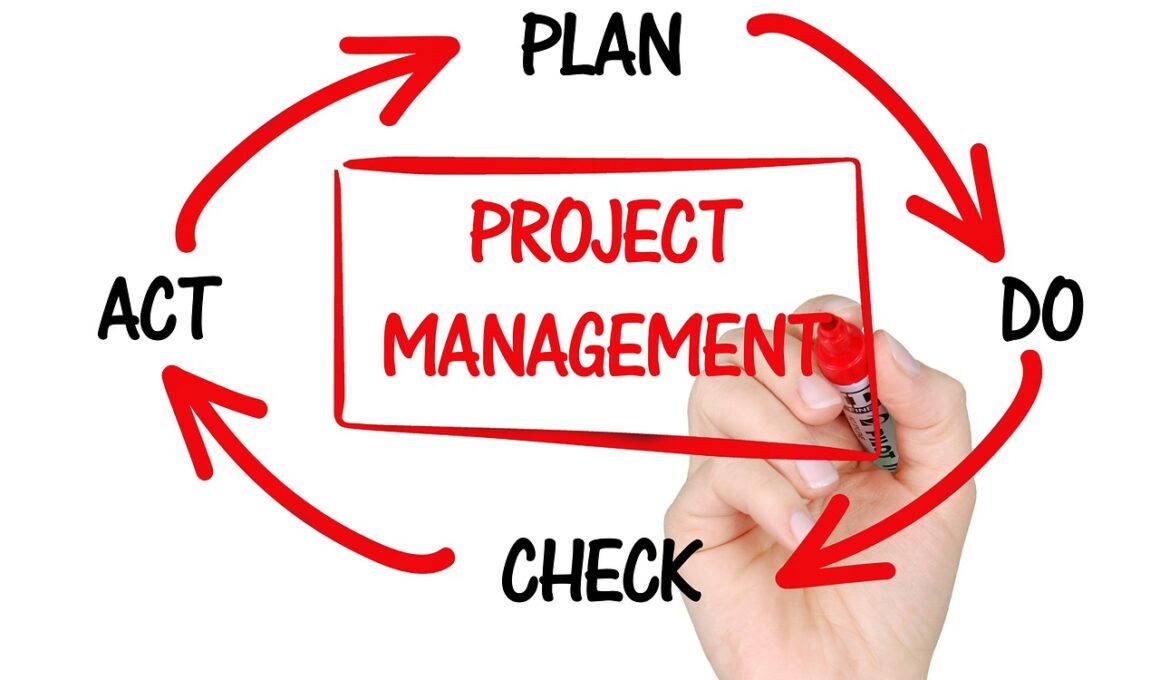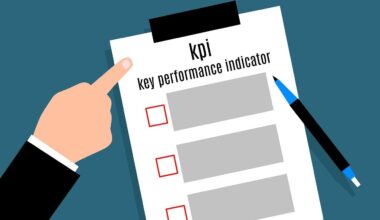Common Challenges in Capturing Lessons Learned and How to Overcome Them
Capturing lessons learned in project management can be fraught with challenges that impede the learning process. A common issue is the resistance from team members when it comes to sharing their experiences. Many individuals may fear judgment or blame, which can result in suppressed insights that could be valuable for future projects. To combat this, creating a safe environment is essential. Encourage open communication that emphasizes growth and collaboration over individual mistakes. Additionally, establish normalized routines for gathering feedback, ensuring everyone’s voice is heard. Another fundamental challenge is the lack of time allocated for reflection. In fast-paced environments, project teams often prioritize immediate tasks over analyzing past experiences. Making it a regular part of the project cycle can help build this into the routine. Teams can implement short debriefs or retrospective meetings focused solely on lessons learned. By setting aside specific times for these discussions, the evaluation becomes an integral part of the process, thus fostering continuous improvement and knowledge sharing among team members.
Another significant hurdle in capturing lessons learned is a lack of documentation. Often, insights are shared verbally but not formally recorded, leading to lost knowledge that could benefit the organization in future endeavors. Project managers should implement systematic processes for documenting lessons learned, ensuring teams capture important takeaways in an organized manner. Utilizing shared digital platforms can aid this process, offering a centralized location for knowledge storage. Such platforms allow easy access for future project teams, which can review past lessons and integrate them into their planning. Additionally, designating specific individuals to compile and summarize lessons ensures accountability and a comprehensive framework for future reference. Failure to capture lessons at all phases of a project can hinder an organization’s growth. Creating templates or forms for capturing lessons, alongside training on what constitutes a ‘lesson learned,’ can significantly enhance the quality of inputs. This approach also links individual experiences to broader team insights, showcasing how personal contributions influence collective outcomes, which is vital for fostering a learning culture within the organization.
Disconnection Between Teams and Stakeholders
Disconnection between teams and stakeholders creates another challenge when capturing lessons learned. Often, project teams may have valuable insights that stakeholders are unaware of, which can lead to a disconnect in understanding project outcomes. This gap can result in repeated mistakes or missed opportunities for growth. To bridge this divide, regular stakeholder engagement is crucial. Include stakeholders in lessons learned sessions to promote alignment and collective learning. Their perspectives can enrich discussions and provide insights that the project team may overlook. Furthermore, fostering a collaborative environment can ensure that lessons are viewed as communal experiences rather than isolated team efforts. Encourage stakeholders to share their insights on project successes and areas for improvement, thus creating a shared ownership of project outcomes. Creating a structured feedback loop between projects and stakeholders can significantly enhance the learning potential of project outcomes. This not only reinforces accountability but also solidifies the importance of lessons learned within the organization. By integrating lessons learned into stakeholder communications and discussions, teams can enhance their relevance and impact on future projects.
Another noteworthy challenge in the process of capturing lessons learned is the issue of timely retrieval and application of insights. Even when lessons are documented, organizations often struggle to deploy this knowledge in real-time project activities. This can result in a situation where valuable lessons remain dormant, not influencing ongoing project strategies. To ensure timely application, organizations should promote immediate documentation right after a project stage or significant milestone. Implementing agile practices can help facilitate this process, allowing teams to review and incorporate lessons learned continuously throughout a project’s lifecycle. Additionally, creating quick reference tools or cheat sheets that summarize key lessons can assist team members in recalling important insights when needed. Incorporating lessons learned during planning and kickoff meetings ensures they are front-of-mind for team members as projects progress. Training sessions that highlight the importance of applying past lessons can also create a mindset focused on continuous improvement and adaptation, allowing greater agility in project management and resulting in more effective outcomes and fewer repeated mistakes in future endeavors.
Overcoming Cultural Barriers
Cultural barriers within organizations play a significant role in the effectiveness of capturing lessons learned. Some cultures may stigmatize failure and emphasize perfection, making it difficult for team members to speak openly about what didn’t work. This leads to valuable lessons being overlooked or ignored. Cultivating a positive culture of learning involves setting an organizational tone that appreciates failure as a part of success. Providing continuous training and development focused on collaboration and open dialogue can help to diminish these cultural hurdles. Peer recognition programs can further encourage team members to share lessons learned without fear of negative repercussions. Emphasizing storytelling as a medium for sharing these lessons creates an engaging way for team members to communicate their experiences. Leadership plays a vital role here; visible support from upper management can promote the practice of openly discussing lessons learned. When leaders actively engage in learning discussions, it sets the standard for the entire organization, making it clear that such insights are valued and essential for collective growth, thus overcoming cultural barriers.
Inconsistent approaches across projects also contribute to the challenges faced when capturing lessons learned. Each project may adopt different methodologies and tools to document lessons, leading to confusion and ineffective application of insights. To address this, organizations must strive for consistency in their documentation process. Developing a standardized framework can make it easier for teams to capture and share lessons learned across diverse projects effectively. Providing training on the use of these standardized templates ensures that all team members understand how to document their experiences accurately. Furthermore, establishing clear guidelines and expectations around lessons learned sessions ensures that all projects align with the same goals and methodologies. Regular evaluations of this framework can also highlight best practices and areas needing improvement. By fostering a culture of uniformity in lesson capture, organizations create a repository of knowledge that becomes an invaluable resource over time, facilitating smoother future projects through more effective and consistent application of learned insights.
Conclusion: Building a Learning Organization
Ultimately, developing a culture that prioritizes capturing lessons learned is crucial in overcoming the challenges that impede effective project management. By addressing resistance among team members, ensuring consistency in documentation practices, and facilitating open communication with stakeholders, organizations can establish a foundation for continuous improvement. Promoting a learning organization necessitates that all levels of staff are equipped and encouraged to share insights. Regular training sessions emphasizing the importance of lessons learned can reinforce this culture, ensuring that every team member understands their role in the knowledge-sharing process. Additionally, enhancing reporting mechanisms for tracking lessons learned and applying them in future projects can improve accountability. Organizations should celebrate successes that arise from effectively implemented lessons learned, recognizing individual contributions to achieve collective goals. As teams instill these practices into their routine, the benefit of capturing lessons learned will permeate throughout the organization. By fostering these principles, organizations can cultivate an environment where lessons learned drive future success, ultimately leading to better project outcomes and enhanced organizational learning.
Adopting an iterative approach to capture lessons can further enhance effectiveness. Iterative review meetings within project cycles allow for reflections and adjustments based on insights gained. This consistent process enables teams to apply lessons in real-time, solidifying the value of previous experiences. Regular engagement fosters a habit of learning that ensures no valuable insights are lost. Regularly revisiting lessons learned sessions throughout project lifecycles not only reinforces their importance but enhances overall project adaptability. Thus, organizations that commit to these methodologies ultimately position themselves as leaders in continuous improvement, equipped with the tools needed to navigate future challenges effectively.





